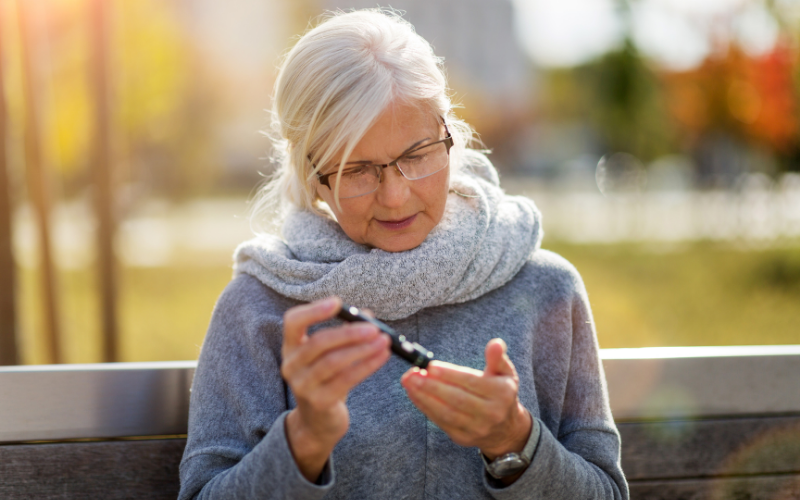Diabetics who sleep badly are at greater risk of dying prematurely, study suggests
Original Article | CNN Health By Sandee LaMotte, CNN
(CNN)People with diabetes who had trouble falling or staying asleep were 87% more likely to die of any cause over the next nine years than people without diabetes or sleep problems, a new study finds.
Poor sleep linked to weight gain in 2-year smartphone sleep tracking studyKnutson and her team also compared people with diabetes who slept well to people with the condition who often experience poor sleep.”People with diabetes who slept badly were 12% more likely to die over a nine-year followup period than people with diabetes who slept without frequent sleep disturbances,” Knutson said.The study is the first to look at the combination of diabetes plus sleep disturbances and mortality risk, she added.

Known link between diabetes and sleep problems
A study of this type can only show association and not causation, said sleep specialist Dr. Raj Dasgupta, an assistant professor of clinical medicine at the Keck School of Medicine at the University of Southern California, who was not involved in the research.Enter your email to subscribe to the Results Are In Newsletter with Dr. Sanjay Gupta.“close dialog”
Sign up for the Results Are In NewsletterGet the latest expert advice to live
a healthier and happier life
Sign Me UpNo, ThanksBy subscribing you agree to ourPrivacy PolicyWhile the study’s findings are disturbing, he said, they are not surprising.”Diabetes is a deadly disease and it can be easily affected by sleep — or the other way around,” Dasguta said. “Are you getting poor sleep because your diabetes is poorly controlled or is the poor sleep making your diabetes worse?”For example, Dasgupta said, people with Type 2 diabetes, the most common type, tend to be overweight and may suffer from obstructive sleep apnea, when throat muscles relax and close the airway, thus disrupting sleep.
Get better sleep by cuddling up with your partner“People with Type 2 diabetes are also predisposed to kidney issues and make multiple trips to the bathroom in the night because they’re always urinating, especially if their diabetes is poorly controlled,” he added. “They can also have damage to blood vessels which causes leg pain called neuropathy, and It’s hard to go to sleep because of that pain.”It’s also possible that poor quality sleep may impact the body’s ability to regulate blood sugars, thus contributing to the development of diabetes, Knutson said.”There’s experimental work which shows that if you take healthy people and disturb their sleep you see impairments in insulin sensitivity,” she said. “There could be a bidirectional association between the two, so if you have sleep issues for a long period of time it may actually lead to the development of diabetes.”
What to do?
Acknowledge and tackle your sleep problems, regardless of whether or not you have diabetes, Knutson said. Sleeping poorly is a risk factor for premature death from any cause all by itself.
Sleep hygiene: 8 ways to train your brain for better sleep“If you usually have trouble falling or staying asleep, you need to talk to a physician and really get at the root of the problem. Find out why aren’t you sleeping well and then figure out how to fix it,” she said.Want some tips for better sleep? SIGN UP FOR CNN’s SLEEP, BUT BETTER newsletterIf you have diabetes, “treat your diabetes — that’s the take home message from this study,” Dasgupta said.”Diabetes is something that needs to be managed by your primary care doctor and endocrinologist.”If you’re not sleeping well, it may be harder to manage your diabetes, Knutson said.Get CNN Health’s weekly newsletter
Sign up here to get The Results Are In with Dr. Sanjay Gupta every Tuesday from the CNN Health team.”It’s not easy to do and then if you’re sleep deprived, maybe you’re just not as good at remembering to take your medication or measure your blood sugars,” she said.A sleep specialist may also need to do a sleep study to see if you have an underlying sleep disorder, Dasgupta said.”When you tell me someone’s waking up quite a bit and they have diabetes, I may not only do need to treat the diabetes, I need to treat sleep apnea or restless leg syndrome or another sleep issue,” Dasgupta added. “Don’t hesitate to get the help you need.”



